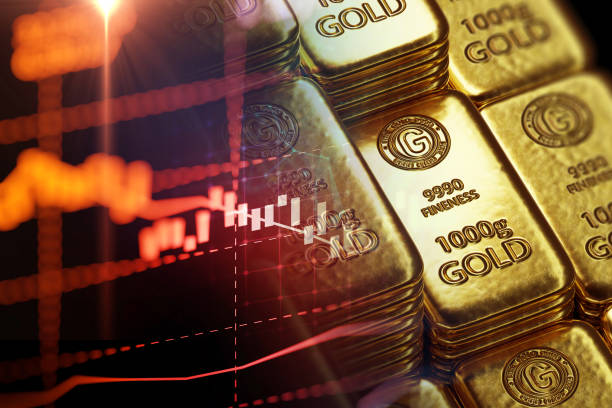国家Bitcoin储备冷战:日本、俄罗斯、美国、香港、德国和萨尔瓦多表明立场

随着世界各国寻求将自己定位为全球金融领导者,建立国家Bitcoin储备的竞赛正在重塑地缘政治战略。最著名的加密货币Bitcoin已成为这场“加密货币储备冷战”的基石,美国、俄罗斯、中国、日本等主要大国都在寻求脱颖而出。
根据Arkham Intelligence 的数据,已知有 10 多个国家持有 BTC。未经证实的报告将阿拉伯联合酋长国列为首位,其投资组合中拥有超过 420,000 枚比特币。
然而,美国是目前确认的最大Bitcoin持有者,拥有约 198,109 枚比特币,按当前市场价格计算,价值超过 180 亿美元。据称,该国持有的资产是通过丝绸之路案件等刑事调查中扣押的资产积累的。
中国位居第二,其次是英国、乌克兰、不丹、萨尔瓦多和委内瑞拉。
美国目标成为全球Bitcoin总部
为了进一步巩固其作为加密货币采用领域全球领导者的地位,包括怀俄明州参议员 Cynthia Lummis 在内的美国立法者提出了一项收购更多 BTC 的提案。 Lummis 的法案被称为“Bitcoin法案”,建议美国在未来五年内每年购买最多 20 万个比特币,目标是占全球加密货币供应量的 5%。
dent总统唐纳德·特朗普采取了这一战略储备措施。在纳什维尔举行的 BTC 2024 会议上,特朗普支持建立“Bitcoin战略储备”,并确认他的政府将defi保留美国政府持有的所有Bitcoin。
以管理 45 亿美元资产而闻名的股票基金经理 Grant Cardone 表示tron支持特朗普的 BTC 储备计划。卡多内将其与约翰·F·肯尼迪dent的太空计划进行了比较,他认为此举可以巩固美国在全球金融体系中的主导地位。
唐纳德·特朗普将提议以“巨大”的方式将比特币纳入我们的资产负债表。美国正在进行一场争夺货币统治地位的世界竞赛。特朗普将向美国人民宣传比特币对于我们在世界上继续发挥领导作用至关重要,就像肯尼迪在出卖美国时所做的那样……
—格兰特·卡登 (@GrantCardone) 2024 年 12 月 26 日
Cardone also highlighted the growing movement among BRICS nations to de-dollarize their economies. He said, “Trump will sell the American people that BTC is VITAL to our continued leadership role in the world.”
However, Fed chair Jerome Powell disputed the idea, saying that the Central Bank can’t hold BTC and that matters involving digital currency should be discussed by Congress, not the Federal Reserve.
Japan and Russia hold back
While the US is planning to push ahead with its BTC strategy, Japan and Russia, who initially hinted at creating a BTC reserve, are backing away.
A recent proposal by Japanese lawmaker Satoshi Hamada suggested that Japan follow the US’ example and convert part of its foreign exchange reserves into BTC. However, Japan’s Prime Minister Shigeru Ishiba’s office stated that the government does not yet have a full understanding of BTC’s potential or the developments in the US and other countries.
As such, Japan’s stance remains non-committal, with further exploration of the idea expected in the future.
Similarly, Russia has ruled out the idea of creating a BTC reserve in the near term. Finance Minister Anton Siluanov has stated that while Russia may consider the possibility in the future, the volatility of BTC makes it a risky asset for national reserves.
Despite this caution, Russia’s interest in BTC has grown, especially since the imposition of Western sanctions. Reports indicate that state-controlled entities and oligarchs have been increasingly using BTC, signaling a shift toward decentralized finance.
The Russian government has also passed legislation legalizing crypto mining and facilitating the use of digital assets for international payments, paving the way for potential future moves toward a national BTC reserve.
China’s strategic holdings
China, the second-largest government holder of Bitcoin, has amassed an estimated 190,000 to 194,000 BTC, primarily through seizures linked to illegal activities, most notably the PlusToken Ponzi scheme. While China has not yet formally embraced Bitcoin as part of its national reserve strategy, the scale of its holdings is noteworthy.
In Hong Kong, Wu Jiexhuang, a member of the Legislative Council, has proposed that the region consider including Bitcoin in its financial reserves.
Jiexhuang pointed to relatively smaller nations, such as El Salvador, which have already integrated BTC into their strategic reserves, as well as US states that have taken similar steps. He noted that Trump’s push to make Bitcoin a strategic reserve asset could have significant implications for global financial markets, urging Hong Kong to study the potential impacts of US-based Bitcoin exchange-traded funds (ETFs).
Germany and the Bitcoin debate
In Europe, discussions are also underway about BTC’s potential role in national and regional reserves. Christian Lindner, former German finance minister, has called on the European Central Bank (ECB) and the Bundesbank to consider adding Bitcoin to their reserves.
Lindner argued that Germany and Europe cannot afford to fall behind in the growing global conversation about cryptocurrencies. He proposed that crypto assets, alongside traditional reserves like gold and foreign currencies, could help strengthen Europe’s financial resilience.
While the ECB and Bundesbank have not yet made a definitive move, Lindner’s remarks underscore the rising interest in Bitcoin within Europe, especially as the US leads the way in adopting it as a reserve asset.
El Salvador’s Bitcoin reserve milestone
El Salvador is among the most proactive nations in adopting Bitcoin. The country has now accumulated over 6,000 BTC, placing it sixth among the largest government holders of Bitcoin globally. El Salvador’s Bitcoin reserves, valued at approximately $570 million, have grown significantly as the price of Bitcoin surged from $45,000 to over $100,000 recently.
CRIME HAS FLATLINED IN EL SALVADOR.
Why?
1. God
2. Determination
3. Ignoring the naysayersWe applied the exact same principles to our Bitcoin strategy, and it paid off, big time.
Now, we’re taking the same approach with our deal with the IMF.
To succeed, we need the same… https://t.co/wCBxoZfkC7
— Nayib Bukele (@nayibbukele) December 19, 2024
The country’s consistent strategy of purchasing one Bitcoin per day has proven successful, with the nation recently making larger-than-usual purchases to further expand its holdings.
El Salvador’s President, Nayib Bukele, has celebrated the country’s Bitcoin reserves, noting that their value has increased by 127% since the country’s initial investments.
If nations continue accumulating Bitcoin reserves, it could signal the rise of digital gold, replacing traditional assets in national treasuries. Bitcoin’s decentralization, limited supply, and resistance to inflation challenge the dominance of fiat currencies like the US dollar and Chinese yen. Crypto could reshape global finance and influence the way countries store wealth.
From Zero to Web3 Pro: Your 90-Day Career Launch Plan







